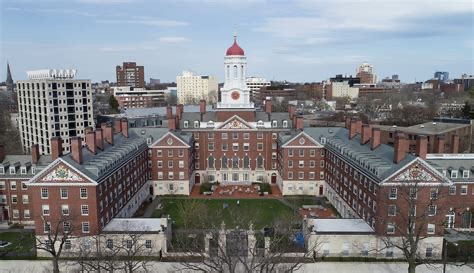Harvard Resists Trump’s Policy Demands, Risks $9 Billion in Federal Funding

Harvard University has come out boldly against a series of far-reaching policy demands issued by the Trump administration, a stance that now threatens nearly $9 billion in federal funding.
The administration had issued the demands in an effort to overhaul the university’s policies concerning diversity, student protests, campus governance, and antisemitism, citing alleged civil rights abuses.
In a letter with no uncertain terms, Harvard University President Alan M. Garber said that the school will not comply with what it characterized as unconstitutional and overly broad demands. “No administration should try to dictate the academic choices, admissions policies, hiring practices, or subjects of study of an independent university,” Garber declared, maintaining the independence of the institution and of academia.
The Trump administration’s demands were reported to be triggered by Harvard’s reaction to campus protests regarding the Israel-Hamas war and more pervasive issues regarding antisemitism. The administration demanded:
•To reform disciplinary policies to curb antisemitic speech related to protests;
•To remove diversity considerations from student admissions;
•To reorder the governance of the university;
•To decertify pro-Palestinian student groups;
•To limit and monitor campus protests more aggressively.
Harvard’s insistence on not acceding to these terms has sparked a political furore in Washington. While Democratic leaders like Senate Majority Leader Chuck Schumer applauded the university for resisting, Republican legislators like Rep. Elise Stefanik called for immediate withdrawal of federal funding, accusing Harvard of enabling antisemitism and abandoning civil rights.
The lawyers’ case is built around the construction of Title VI of the Civil Rights Act that prohibits discrimination by the recipients of federal funds. The Trump administration asserts that the campus culture of Harvard has been defying this law, but Harvard contends that the administration is stretching civil rights law too far and suppressing free speech and academic freedom.
This standoff is a sign of increased tension between elite universities and federal officials regarding ideological control, campus free speech, and governance. Billions of dollars in research dollars and student loans are at stake as Harvard’s position could set a precedent for how universities nationwide respond to increasing political pressure.
As the case unfolds, lawyers predict a potential courtroom showdown that could ultimately land in the Supreme Court’s hands.








